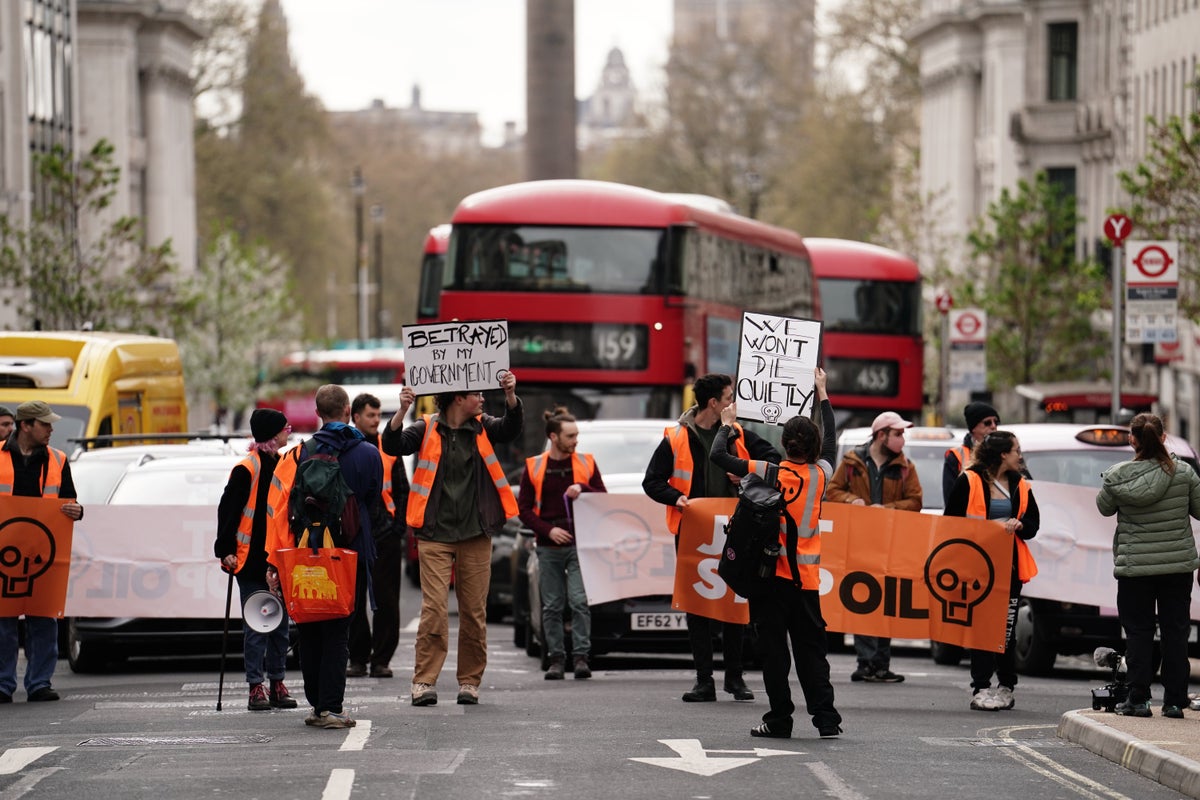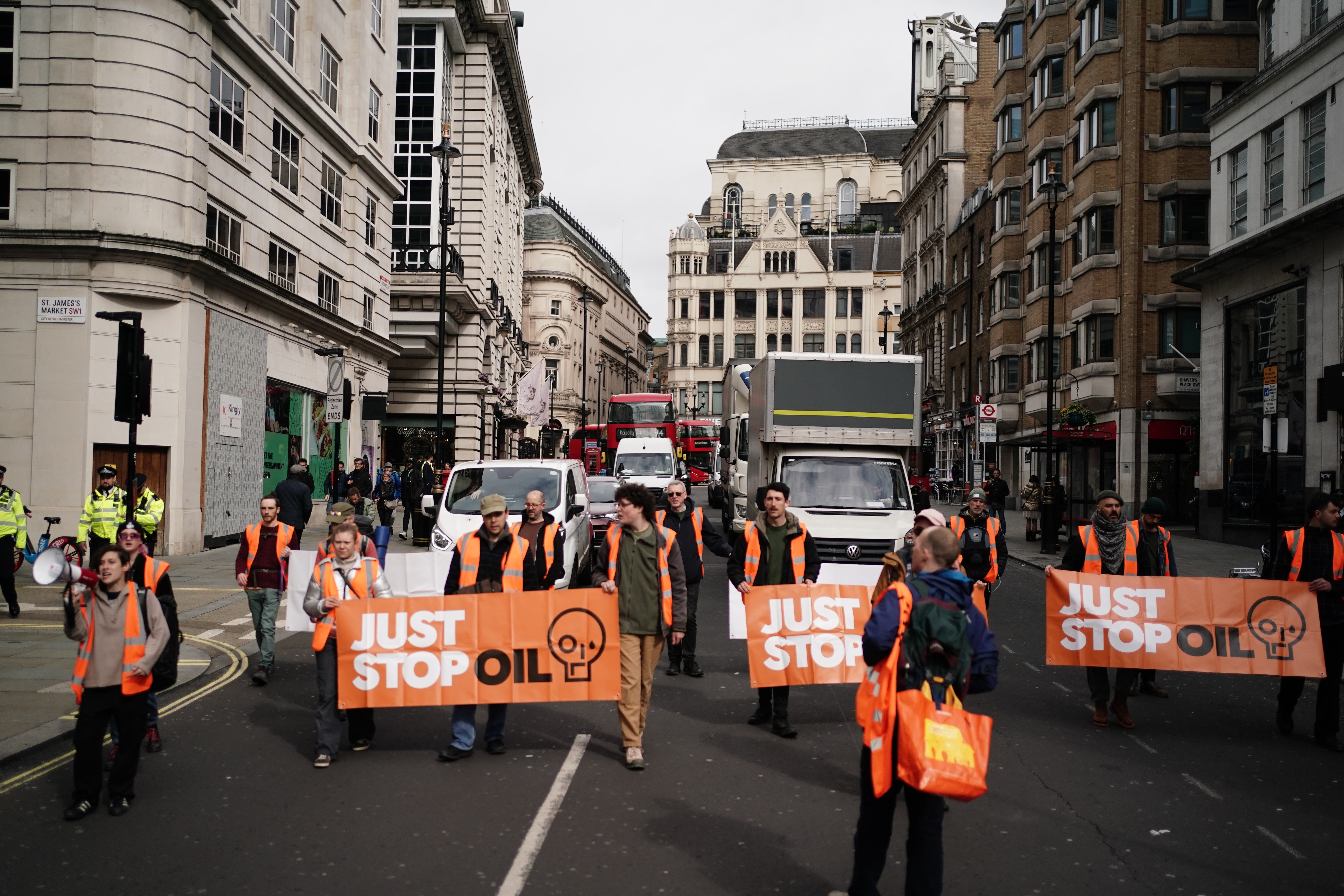
Police will be given the power to break up “slow walking” protests under new legislation, Suella Braverman has announced after a controversial law over the tactic was blocked by the House of Lords.
Peers stripped out a clause of the Public Order Bill that aimed to tackle tactics used by environmental groups in February, but the home secretary is now introducing a statutory instrument that will come into effect without being voted on in parliament.
The move was announced after Just Stop Oil launched a series of slow marches in central London on Thursday, with the Metropolitan Police saying officers responded to several demonstrations over three hours.
Scotland Yard said that after being warned they were “causing serious and unreasonable disruption” under the Public Order Bill, which was approved on Wednesday, protesters “complied and moved out of the road”. No arrests were made.
But the Home Office later announced that a statutory instrument linked to the bill would “empower police to intervene against highly disruptive slow marching tactics used to block roads and cause chaos”.
It will set out the legal meaning of “serious disruption”, aiming to make clear their new powers can apply to slow walking.
Ms Braverman said: “Selfish, disruptive protesters are wreaking havoc in people’s everyday lives across the country and this must be brought to a stop.
”This is why we are bringing forward this new law to clearly define serious disruption as requested by police chiefs.
“Not only will the Public Order Bill, passed yesterday by parliament, introduce new criminal offences for causing serious disruption, this new legislation permits the police to clear the roads of slow marching protesters who are hell-bent on causing chaos across the UK.”
The bill will also make“locking-on” a criminal offence, enable the suspicionless stop and search of protesters for items that could be used for that purpose, and create orders to restrict individual demonstrators’ movements and activities - even if they have not been convicted of a crime.
All opposition parties voted against the laws, which were strongly criticised by protest groups and charities as a disproportionate crackdown on freedom of expression and the right to protest.

On Thursday, the United Nations high commissioner for human rights called for the UK to reverse the law, branding it “deeply troubling legislation that is incompatible with international human rights obligations”.
Volker Türk added: “This new law imposes serious and undue restrictions on these rights that are neither necessary nor proportionate to achieve a legitimate purpose as defined under international law. This law is wholly unnecessary as UK police already have the powers to act against violent and disruptive demonstrations.”
Mr Türk accused the government of seeking to “pre-emptively limit someone’s future legitimate exercise of their rights” and deliberately targeting peaceful protests over human rights and environmental issues.
“As the world faces the triple planetary crises of climate change, loss of biodiversity and pollution, governments should be protecting and facilitating peaceful protests on such existential topics, not hindering and blocking them,” he added.
The bill was introduced less than a year after another raft of controversial protest laws in the Police, Crime, Sentencing and Courts Act 2022, because the government had been defeated on several “draconian” desired powers and needed new legislation to bring them in.
Chief Constable BJ Harrington, the national police lead for protests, said: “It is the responsibility of Parliament to make the law, and our job to enforce it.
“We have advised and provided professional advice to the Home Office to inform decisions about public order legislation. This has been based on ensuring that we can discharge our responsibilities appropriately, while balancing the rights of the public who are going about their daily business lawfully, and the rights of those protesting.”

.png?w=600)





